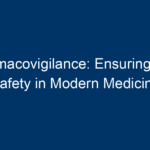In today’s fast-paced job market, standing out from the competition is more critical than ever. Whether you’re entering the workforce, looking to advance in your current position, or pivoting your career altogether, industry certifications can be a game-changer. These credentials not only validate your skills but also enhance your employability and earning potential. In this article, we’ll dive deep into how industry certifications can unlock your career potential, the various types available, the process to obtain them, and much more.
What Are Industry Certifications?
Industry certifications are designations awarded to individuals who have met specific qualifications and passed assessments in their respective fields. These certifications demonstrate a person’s expertise, skill level, and commitment to continuous learning. They are often issued by recognized industry organizations and can cover a myriad of sectors, from technology and healthcare to finance and project management.
Importance of Industry Certifications
-
Validation of Skills: Certifications provide proof of your skills and knowledge, making you more attractive to employers.
-
Competitive Edge: In a crowded job market, having industry certifications on your resume sets you apart from the competition.
-
Career Advancement: Holding relevant certifications can open doors to promotions and salary increases, as many employers prioritize certified candidates for higher positions.
-
Networking Opportunities: Certification programs often come with access to exclusive networks of professionals in your field, facilitating connections that can benefit your career.
- Commitment to Professional Development: Earning certifications shows employers that you are dedicated to your profession and committed to keeping your skills up-to-date.
Types of Industry Certifications
1. Technical Certifications
In fields like IT and cybersecurity, technical certifications are indispensable. For example:
- CompTIA A+: Validates foundational IT skills.
- CISSP (Certified Information Systems Security Professional): Focuses on cyber security knowledge and practices.
2. Project Management Certifications
For those looking to enhance their project management skills, certifications such as:
- PMP (Project Management Professional): Recognized worldwide, it demonstrates knowledge in project management.
- PRINCE2: A structured project management method widely used in the UK and internationally.
3. Healthcare Certifications
In the healthcare sector, certifications are crucial for roles like nursing and medical coding. Examples include:
- CNA (Certified Nursing Assistant): Essential for entry-level nursing positions.
- CPC (Certified Professional Coder): Validates expertise in medical coding.
4. Sales and Marketing Certifications
For individuals in sales and marketing, certifications such as:
- Google Analytics Certification: Shows proficiency in data analytics and online marketing.
- HubSpot Content Marketing Certification: Proves knowledge in content marketing strategies.
How to Choose the Right Certification for Your Career
Choosing the right certification can be challenging, but by considering a few vital factors, you can make an informed decision:
1. Assess Your Career Goals
What do you want to achieve in your career? Whether you aim to specialize in a specific area or broaden your skill set, your goals will dictate the type of certification to pursue.
2. Research Industry Demand
Investigate which certifications are in high demand within your industry. Websites like LinkedIn and Payscale can provide insights into what employers are looking for.
3. Evaluate Certification Credibility
Look for certifications from recognized organizations. Research their reputation in the industry and the value they bring to your career.
4. Consider Your Starting Point
Begin with foundational certifications if you’re new to a field. As you gain experience, you can progress to more advanced certifications.
5. Budget and Time Constraints
Consider the costs associated with certification, including exam fees, preparation resources, and course materials. Factor in the time commitment required to study and prepare for the exam.
The Process of Earning Industry Certifications
1. Preparation
Most certifications require you to study and prepare. This can be done through:
- Self-study: Utilizing textbooks, online courses, and practice exams.
- Formal classes: Enrolling in courses or workshops designed to prepare you for the certification exam.
2. Exam Registration
Once you’re prepared, you’ll need to register for the exam. This often involves:
- Paying a registration fee.
- Selecting a testing location or opting for an online exam.
3. Taking the Exam
On the day of the exam, ensure you arrive early, follow guidelines, and remain calm. Preparation will be key to your success.
4. Maintaining Your Certification
Many certifications require ongoing education to maintain your credential. This may involve completing continuing education units (CEUs) or recertifying after a certain period.
Common Myths About Industry Certifications
-
Certifications Guarantee Jobs: While they enhance employability, obtaining a certification does not guarantee job placement.
-
All Certifications Are Equal: Not all certifications hold equal weight. Research and select reputable certifications that fit your career goals.
- Certifications Are Only for Entry-Level Professionals: Even experienced individuals can benefit from obtaining certifications to stay current in their fields.
The ROI of Industry Certifications
Investing in industry certifications can yield significant returns over your career. According to a report by Global Knowledge, professionals with certifications can earn up to 20% more than their non-certified peers. Additionally, companies recognize the value of certified professionals, often awarding higher salaries and more significant responsibilities.
Conclusion: Take Action Today!
Unlocking your career potential through industry certifications is not just a trend; it’s a strategic move that can lead to substantial professional growth. Whether you’re a budding professional or a seasoned expert, obtaining relevant certifications can enhance your knowledge, validate your skills, and open pathways to new opportunities.
Actionable Insights
- Start by researching certifications relevant to your industry: Make a list of the top certifications applicable to your career goals.
- Network with industry professionals: Join forums, attend industry conferences, and connect on platforms like LinkedIn to learn more about their experiences.
- Set a timeline and budget for your certification journey: Outline specific goals, including when you’d like to complete a certification and how much you’re willing to invest.
- Stay committed to lifelong learning: As industries evolve, continually seek out new certifications to maintain your competitive edge.
Remember, your career potential is within your reach—take the first step today!




